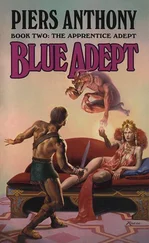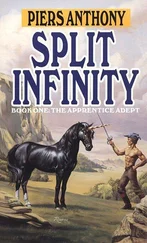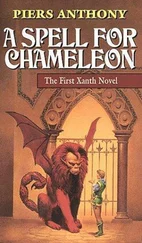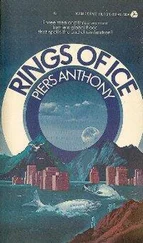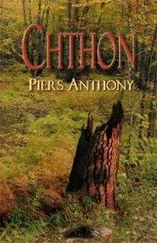“Two hundred!” the Minister of Culture gasped. “Two hundred times human normal?”
“That’s right,” the Minister of Population said smugly. “The next prospect, apart from the liability of being female, is only ninety-eight on the Kirlian scale. The barbarian is something special.”
“We’re stuck with the Jolly Green Giant,” the Minister of Culture muttered.
“Disaster,” the Minister of Population agreed.
“On the contrary,” the Regent said briskly. The alien envoy had evidently viewed these men with a certain condescension; the alien had been a sharp judge of character! “Ideal. This innocent will hardly realize what he is getting into. What better choice for our first experimental transfer of a human being to an alien Sphere? We can have no notion of the risks this entails! If the advanced entities of the Inner Galaxy won’t even try the Spheres of our region…”
The Ministers exchanged glances. A smile passed among them.
The old man and the young man lay in the cool of predawn, looking up at the stars. The old man wore a ragged tunic; under it his skin was an off-shade of white. The young man was naked, and was a delicate green all over. He was large and muscular, even for Outworld.
“Can you see Arcturus, boy?” the old man asked.
“Yes, Shaman,” Flint said with good-natured respect. He was no longer a boy, but he made allowances for the old man’s failing vision. If there was one thing the wise Shaman had taught him—and indeed there were many things—it was not to take offense irresponsibly. “Shining as always, about third magnitude.”
“And Vega?”
“Yes, fourth magnitude.” Each distinction of magnitude meant a star was about two and a half times as bright—or dim. It seemed to help the Shaman to be reminded that Vega was dimmer than Arcturus, so Flint always repeated the information. On cloudy nights these magnitudes changed, if the stars were visible at all. He could have called them out from memory, but the Shaman had also taught him never to lie unnecessarily.
A pause. Then: “Sirius?”
“Fainter. Fifth magnitude.”
“And—and Sol?” The old man’s voice quavered.
“No. Too faint.”
“Use the glass, boy,” the Shaman said.
Flint raised the small old telescope, a relic of the first colony ship that had brought his ancestors, over a century ago. He oriented on faint Sirius, then slid toward the nearby region where Sol was to be found. The instrument magnified ten times, which meant that stars of up to eight and a half magnitude should be visible. But magnification was not enough: the scope did not fetch in sufficient light to provide proper clarity at night. So Sol, magnitude seven and a half, was a difficult identification, even for Flint’s sharp eye. For the half-blind Shaman, it was impossible.
Now Flint was tempted to lie, knowing how important it was to the old man to spot Sol, even secondhand, this night and every night of the season it was in the night sky. But the Shaman had an uncanny knack for spotting that sort of thing.
Then, faintly, he saw it. “Twin stars! Sol and Toliman!” he cried exuberantly.
“Sol and Toliman!” the Shaman echoed. The words were like a prayer of thanksgiving.
Flint set down the telescope. The ritual had been honored. They had seen Sol tonight.
There was still an hour until dawn, and the Shaman made no move to rise for the walk down the mountain. Flint had work to do, but he had learned not to hustle the old man. The Shaman had never quite acclimatized to the fifteen-hour days of Outworld. He would sleep one full night, seven and a half hours, then stay up a day and a night, fifteen hours straight, then nap in the daytime. He had, he said, been born to a twenty-four-hour cycle, eight hours asleep and sixteen awake, and this was as close as he could make it on Outworld. Flint had once tried to duplicate that odd rhythm, but it had made him irritable and muddle-minded. No one could adopt Shaman ways except the Shaman.
Sometimes the Shaman liked to talk a bit, as he neared the end of his day-night vigil. Flint pretended to the other tribesmen that he merely humored the old fogey, but the truth was that the Shaman’s words were almost always fraught with meaning and unexpected revelations. He had taught Flint amazing things—and some of the best had been almost by accident. “Shaman, if I may ask—”
“Ask, boy!” the man replied immediately, and Flint knew that this was, indeed, a talking night. Perhaps it would make his early awakening worthwhile, apart from the necessity of helping the old man up the steep hill. “What was it like—on Sol?”
“Not Sol, Flint. Earth . Sol is the star, Earth the planet just as Etamin is the star here, and Outworld the planet. A small star, Sol, and a small planet, ’tis true, but the home of all men and still lord of all Sol Sphere.”
Flint knew. Etamin was a hundred times as brilliant as Sol, and Outworld twice Earth’s mass. That was why Outworld, though ten times as far from its star as Earth was from Sol, had a similar climate. Lower density, heavier atmosphere, and faster rotation brought the surface gravity down to within 10 percent of Earth’s, effectively, so man had been able to colonize and survive here. Of course Outworld’s year was thirty times as long, but what the Shaman called a severe precessional wobble provided seasons similar to Earth’s. All this was but a fraction of the knowledge the Shaman had dispensed in the course of prior conversations. The tribesmen hardly cared, as long as hunting was good—but Flint was fascinated, and always wanted to comprehend more.
“Earth, of course,” Flint said. “But the planet—was it like this? With rains and vines and dinosaurs?”
The Shaman laughed, but had to stop when it triggered off his cough. “Yes and no,” he gasped after a bit. “Rains, yes—every few days in some sections. But no vines—not such as you mean. None you could really climb on. Dinosaurs—not today, only long ago, a hundred million years ago! Only birds and mammals and fish and a few small reptiles and not many wild animals, with the human species overrunning the last wilderness areas. Earth is crowded, boy—more crowded than you can imagine. Hundreds, thousands of people per square mile. Even more!”
Flint had heard this before, too, but he allowed for exaggeration. It would be impossible for the land to support more than ten or fifteen people per square mile; the game would all be destroyed by overhunting. He had had experience hunting; he knew the limits. “Why is there such a difference, Shaman? Why isn’t Outworld just like Earth, since it was colonized directly from Earth?”
“An excellent question! The experts have wrestled with that one for decades, Flint. The answer is, we don’t really know. But we have some educated guesses.”
“There must be a reason,” Flint said complacently. “There’s a reason for everything—as you have told me.”
“Reason, yes. Understanding, no. But the prevailing theory—or it was when I left Earth—is called the Principle of Temporal Regression, and it applies to all Spheres, not just ours. Earth is civilized, but since our fastest ships can achieve only half light-speed, it takes many years to reach the farther colonies. Vega is twenty-six and a half light-years from Sol, so it takes over fifty years to travel between them, one way. Sirius is within nine light-years of Sol; that’s about eighteen years. Even Toliman—it was called Alpha Centauri—was just over four—”
Flint cleared his throat, gently.
The Shaman chuckled ruefully. “I ramble, I know. The point is this: it takes time to communicate between the colonies—so they are always somewhat out of date.”
Читать дальше




